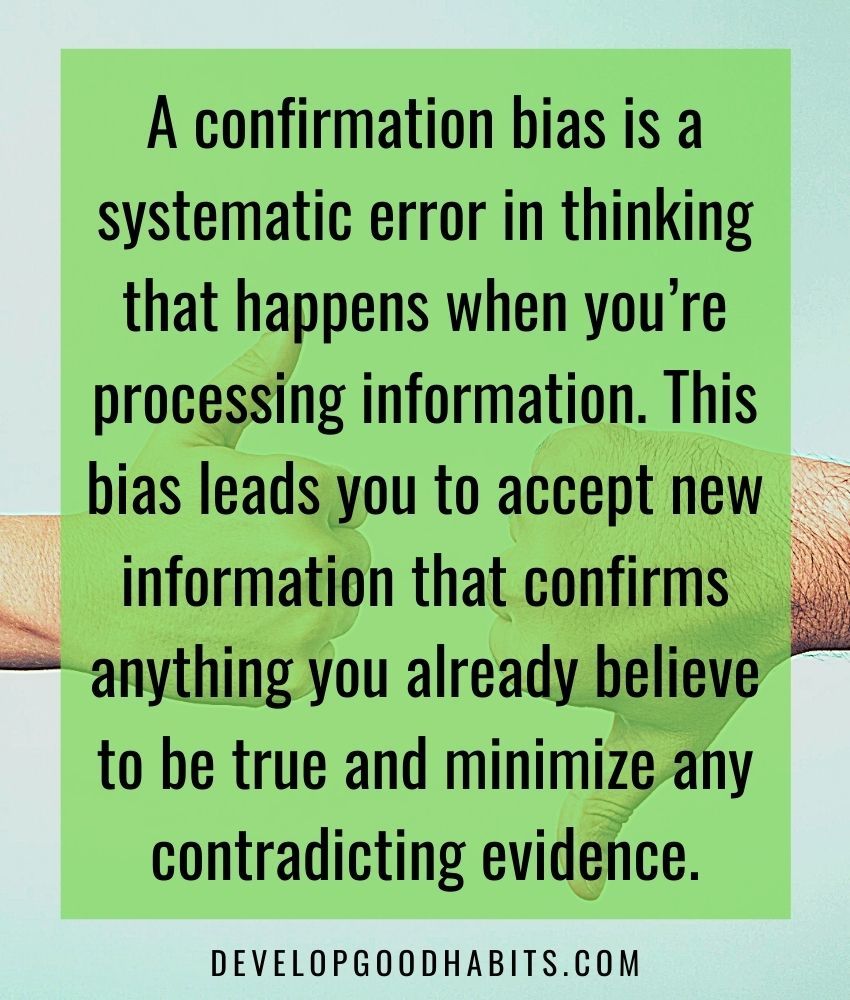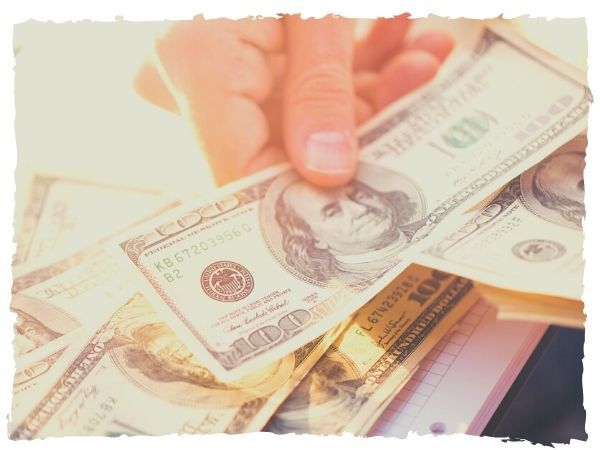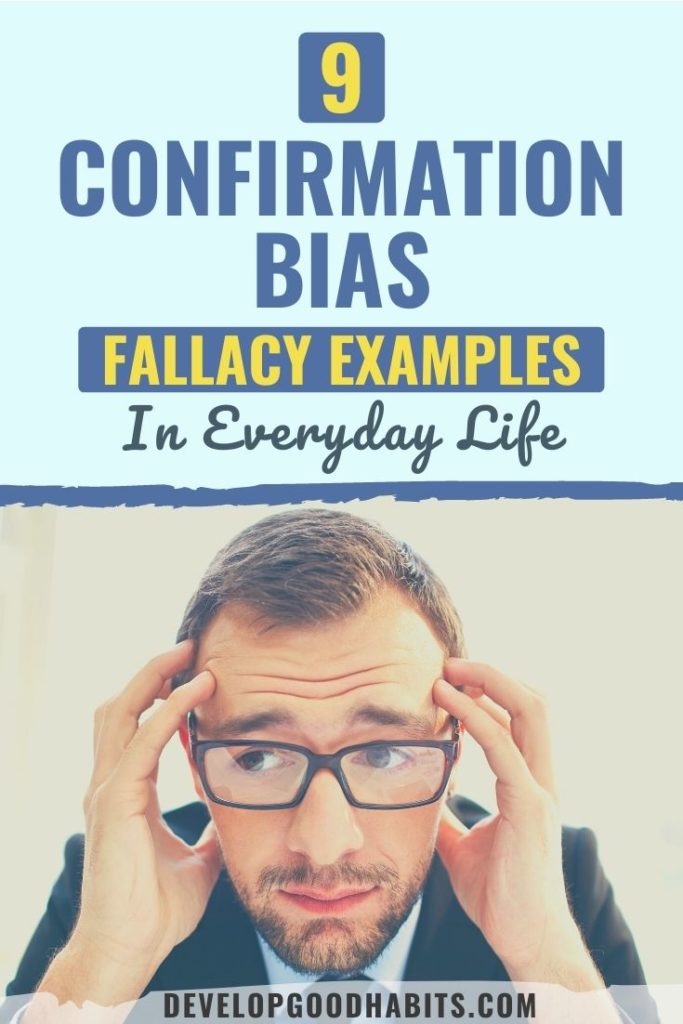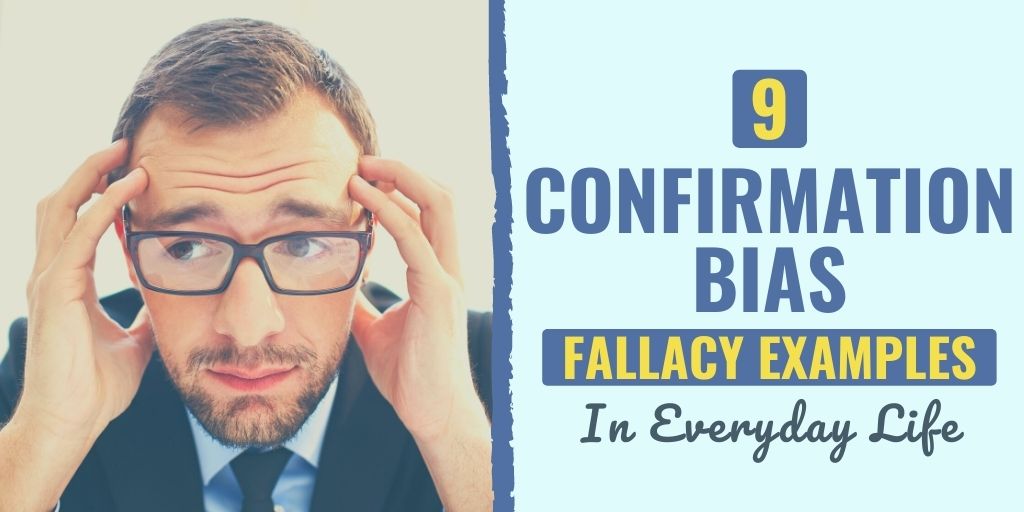There might be affiliate links on this page, which means we get a small commission of anything you buy. As an Amazon Associate we earn from qualifying purchases. Please do your own research before making any online purchase.
If you work hard day in and day out and always strive to put your best foot forward at anything you’re doing, you will probably be surprised to know that your brain…is lazy.
On the other hand, if you’re familiar with the “exercise paradox” — the contradiction that despite increasing knowledge about the importance of exercising, people are actually becoming more sedentary–you’re probably familiar with this truth.
Studies have shown that the human brain is hardwired to be attracted to sedentary behaviors. Now, you may understand this when it’s put that way because who doesn’t want to take a nap on the couch in the middle of the day?
Conserving energy has been an essential factor in human survival since the beginning of time, as it once allowed us to be efficient in finding food and shelter and avoiding predators.
Confirmation bias is often still evolutionarily efficient, as reinforcing things we already believe to be true helps us make fast and accurate decisions.
For example, if you heard a bear growling in the woods, you wouldn’t sit around waiting to see if the bear confirmed your pre-existing belief that it may be dangerous. Instead, your memory would perform a quick sound check, confirm there is a bear near you, and you would run for the hills.
So, confirmation bias is an extremely useful survival instinct, but the issue that comes up when you apply this cognitive skill to our modern world is that it can cause you to manipulate research in a way that only confirms your beliefs without offering contradictory information. Even though we are now in an era where we aren’t being chased by saber-toothed tigers on the way to the grocery store, our brain activity has remained the same.
So now, you’re probably not surprised to hear that cognitive biases–such as confirmation bias–usually come as a result of your brain's tendency to want to simplify information. Accepting information that aligns with whatever you already believe and ignoring any evidence suggesting otherwise helps you make sense of the world quickly, accept your conclusions, and move on.
As Warren Buffet once said, “What the human being is best at doing is interpreting all new information so that their prior conclusions remain intact.”
In this article, we are going to look at what a confirmation bias is and then go into detail with nine examples of ways you may encounter this type of cognitive bias in your everyday life.
Let’s start by looking a bit more at what a confirmation bias is.
What Is a Confirmation Bias?
A confirmation bias is a systematic error in thinking that happens when you’re processing information. This bias leads you to accept new information that confirms anything you already believe to be true and minimize any contradicting evidence. It happens because we want what we think is true to actually be true.
Because people are heavily influenced by this type of wishful thinking, this bias prevents people from doing their own research on a topic or gathering any sort of outside evidence that opposes their view.
But, why don’t people want to do this?
People stick to their guns for two reasons:
In fact, the need for consonance is so strong that when people are forced to see contrary evidence, they often find a way to criticize, alter, or dismiss it so they can maintain (or even reinforce) their existing belief.

When you’re making judgments about any type of situation or environment, you probably like to assume you’re thinking logically and objectively by considering and analyzing all of the information that’s available to you. But confirmation bias indicates that we don’t see things objectively. Unfortunately, this can limit our thinking, leading to poor judgments because we want to be right. We want to assume that what we “know” is true.
Once we’ve formed an opinion, we embrace any evidence that confirms our view and ignore information that suggests anything otherwise. We pick and choose what data to believe because it makes us feel good when our prejudices are confirmed. However, doing this can easily trap you in your own assumptions.
Here’s an example of a phenomenon that you’ve probably heard–imagine that you believe that those who are left-handed are more creative than those who are right-handed. If so, whenever you encounter someone who is left-handed and creative, it probably makes you hold on to that belief even more. Furthermore, you may even discount examples that show evidence pointing toward the opposite.
If you feel like you can relate to this way of thinking–don’t worry. Everyone displays cognitive biases in some way. And while it may be easier to identify when other people do it, it’s important to know that it’s something that can negatively impact and influence your reasoning. Here are some signs that suggest you may be influenced by confirmation bias:
Now that you know what you’re looking for when it comes to confirmation biases, let’s look at some specific examples that you may notice in an everyday conversation–or may catch yourself thinking.
9 Examples of the Confirmation Bias in Your Everyday Life
1. Someone Doesn’t Like You
It is common for people who are anxious by nature to fall victim to having confirmation bias. But, even if you don’t consider yourself to be an anxious person, you’ve probably been in this situation before.
Let’s say you’ve started a new job at a company where you don’t know anyone. You notice your boss is fairly talkative to other people in the office, however, she never really addresses you in meetings or goes out of her way to check in with you to make sure that you’re doing alright or see if you have any questions. You leave your office door open (so you don’t seem antisocial in your new environment) and while she often walks past your door, she doesn’t acknowledge you.
After some time has passed and you have had only strictly professional interactions with her, you find out from a co-worker (turned friend) that you were not included in a department-wide email. Then, one morning, you notice that your boss brought in coffees from the local cafe, but she didn’t ask if you wanted anything like she had asked the others. And when you emailed her asking for a particular day off, she never responded.
Yes, you have gotten some positive feedback from her on your work during supervision meetings, and that one time, she did say, “Have a good weekend!” But that was just her trying to fake it a bit, because she undoubtedly hates you.
I know I’ve been in a position where I think someone doesn’t like me and there isn’t too much they can do to change my mind, especially if we have minimal contact with each other. But, when I think logically, the fact is that we don’t interact very often, so there really isn’t a reason why this person wouldn’t like me.
So, while I’m getting offended seeing pictures of her on social media out with some of our mutual friends assuming I know exactly why I wasn’t invited, I really have no factual evidence behind this feeling, which makes it a confirmation bias.
2. Politics
Where do you go to read the news?
Your chosen news source could be limiting your access to all of the facts. Consider someone with strong political beliefs on either end of the political spectrum. They may only turn to news sources that align with their beliefs. Homogeneous social and news networks permit polarizing opinions to be aired and are often closed to new or opposing information.
Because people have a tendency to not question the facts offered by their news source of choice, it’s not likely that someone would do any type of fact checking. Furthermore, some news sources offer misinformation or leave any conflicting views out of their segments, so sticking to a single news source is a powerful example of confirmation bias.
Also, with so many news sources available, if you hold a strong opinion on anything–no matter how unpopular your belief is– you’re more than likely able to find some source that agrees with you.
Research has shown that a scientific approach (which has not yet been identified) is needed to ameliorate this problem. One potential approach is to have social media platforms develop algorithms to only display content from news sources that users deem as being high-quality and trustworthy. By doing this, people are less likely to absorb (and believe) fake news and may be more likely to look at some presented alternatives to their beliefs.
3. Religious Beliefs
Those who are religious in any way may translate everyday events as proof of their religious beliefs. Positive events may be considered to be miracles, while tragedies are regarded as being tests of their faith.
On the other hand, those who are not religious could experience the same events and view them as further reinforcement of their lack of faith, claiming things like, “If God existed, tragedies such as 9/11 and hurricane Katrina would never happen.” Regardless of the event or its magnitude, people thinking with a confirmation bias can manipulate it to validate their beliefs.

Furthermore, people’s outlook on laws, policies, and even the beginning of time can be influenced by their religion with a strong confirmation bias. For example, some people who hold religious beliefs turn to the Bible for their evidence that same-sex marriage is wrong and reject any research suggesting otherwise. While not all religious people share this belief, it has been a commonly debated issue over the past decade that has brought attention to the opinions of many religious leaders.
In the same vein, those who believe that God created the earth because that is what they were taught by their religion will reject the theory of evolution and then only accept information that supports their beliefs or disproves evolution when addressing the topic.
4. Science
Homeopathic medicine is a great example of mass confirmation bias.
Jacques Benveniste, a French scientific researcher, invented homeopathy after becoming convinced that if histamines were diluted, they became more effective because of something he called “water memory.” He performed tests on his hypothesis and came to his results without using any type of blinding in his studies, which led to a placebo effect on, well, everyone.
However, he was so sure of his hypothesis that he found all of the data that he could to confirm his findings and ignored anything that didn’t. And, while other researchers proved his hypothesis to be false (which resulted in many of his employees quitting), homeopathy continues to increase in popularity. Those who believe in and practice homeopathy cling to evidence that supports the practice and ignores anything that goes against it.
When conducting an impartial and genuine study, researchers should attempt to prove their hypotheses wrong, not to confirm them as being right. Unfortunately, such as in the case of homeopathy, there are often cases where data is interpreted in a biased manner, or when scientists repeat experiments until they get the results that they’re looking for. Confirmation bias also occurs when researchers do peer-reviews of studies, as they may lean toward giving positive reviews to studies that confirm their own views and reject those that don’t.
These practices are ultimately harmful for the public because we rely on researchers and on peer-reviewed studies from reliable sources for our own knowledge, and knowing that some of these studies may be tainted due to bias is disheartening.
5. Diagnostic Errors
The confirmation bias impacts how doctors make clinical diagnoses because once they determine an initial diagnosis, they often move forward searching for the most recent studies or information in a selective way in order to confirm they’re correct, all the while overlooking information suggesting that their diagnosis could be incorrect.
Errors in making a diagnosis can lead to extreme consequences, including death, and researchers have concluded that sometimes a doctor’s desire to confirm his or her initial diagnosis without searching for evidence suggesting otherwise is what often leads to incorrect diagnoses.
A study published by Cambridge University Press analyzed whether or not psychiatrists and their students were inclined to succumb to confirmation bias and whether this phenomenon led to inaccurate diagnostics in psychiatry. After reviewing the work of 150 participants, the researchers found that 13% of psychiatrists and 25% of their students demonstrated confirmation bias when exploring for information after making an initial diagnosis.
What’s more, those who did research seeking for confirmation of their diagnosis were significantly more likely to make an incorrect diagnosis when compared to those who sought out information to disprove their preliminary diagnosis. The doctors who did a confirmatory search rather than looking for balanced information or information proving their diagnosis was wrong concluded an incorrect diagnosis in 70% of their cases, and therefore prescribed different treatment options than participants who made a correct diagnosis.
Because searching for only confirmatory information retains the risk of making an incorrect diagnosis, psychiatrists and other doctors should be made aware of confirmation bias and use techniques to reduce this from impacting their work.
6. In Employee Relations
Confirmation bias can present a problem in the workplace if managers or supervisors feel a certain way about a particular employee or a larger group of people.
For example, bias either for or against a prospective employee could impact the interview questions that they choose to ask during the hiring process. A lot of research has shown that hiring processes are both biased and unfair because of conscious or unconscious racism, ageism, and sexism.

And professionals on the subject argue that confirmation bias plays a large role in this because “Seeing is believing.” So, for example, if you don’t see many (0r any) male kindergarten teachers or female car mechanics, you won’t naturally associate those sexes with those jobs, which may lead to the application of different standards when hiring, evaluating performance, and promoting employees.
Additionally, if a manager is dissatisfied with an employee in general, he or she may make an effort to seek out the employee’s faults or mistakes in the future to confirm their belief that the person is not a positive asset to their team. Likewise, if there is an employee who performs extremely well on a regular basis, a manager may be quick to overlook a mistake that person made that anyone else would have had disciplinary action taken against them if they made the same mistake.
7. Business Decisions
Imagine that a company is considering offering a new service. The president has an idea that he believes will generate a ton of revenue, so he assigns a task to his team to do some market research to explore outside interest for this new service. The team then conducts surveys, focus groups, and individual interviews with customers about their boss’s new idea.
This is where the confirmation bias kicks in: The president already believes this service will be successful, so any information gathered from the market research will be picked through to confirm his preconceived beliefs. He’s not interested in gathering quantitative data or hard facts–only qualitative data that can be interpreted however he wants it to be.
Also, the team is doing what they’ve been told to do knowing very well what their boss wants the outcome to be. Because of this, the questions they ask customers are biased and posed in a way that elicits a positive response so they can report back to their boss with the answers he’s looking for.
Unfortunately, this hypothetical scenario is all too common, and is another example of manipulating research in a way that conforms with one’s confirmation bias.
8. Money and Investments
When it comes to making investments, people tend to rely heavily on information that confirms their current beliefs regarding the value of various stocks. And, where do investors commonly turn to for the most up-to-date financial opinions? Online message boards.
Virtual communities play a large role in people’s social, political, and financial behaviors. Message boards that focus on investing offer an ideal platform for people to analyze financial issues because of the substantial user base and consistent uncertainty in the market.
Researchers have found that investors on these message boards demonstrate confirmation bias by trading more actively when their beliefs are confirmed by other investors because it leads to a sense of overconfidence. However, this also causes users to expect higher returns on their investments than what is justified.

The researchers concluded that participation in virtual investment communities isn’t an ideal method of getting financial advice because of this. Also, there is no way of telling if the other people on the message board really know what they’re talking about.
9. Eyewitness Testimonies
Although forensic science has come a long way in recent decades, eyewitness accounts are still often used in criminal cases. But consider how confirmation bias could potentially influence eyewitnesses to make assumptions that are not actually based on facts. In fact, there have been hundreds of wrongfully convicted people whose cases have been overturned since their original trial due to a witness’s confirmation bias.
The wrongful conviction of someone isn’t typically the result of one investigative error–instead, it’s usually due to a series of mistakes that could be avoided if legal authorities took into account that once we form an opinion about an issue, we rarely review any evidence that suggests the opposite is true. This type of confirmation bias has played a central role in a substantial number of wrongful conviction cases reviewed by researchers.
In fact, the National Registry of Exonerations recently issued a report identifying 151 cases of exoneration in 2018, representing innocent people who spent a total of 1,639 years in prison where someone’s confirmation bias had a large impact on the outcome of the trial.
Is There Any Way to Avoid Confirmation Bias?
Glad you asked.
With some practice, you can learn to recognize the role that confirmation bias plays in your patterns of thinking. When confronted with information, consider the following:
Final Thoughts on the Confirmation Bias
Being aware of your confirmation bias isn’t easy, especially in cases where there’s a right answer with an abundance of evidence, but your predispositions stand firm. However, it’s important to understand confirmation bias and its tendency to lead to narrow mindedness, especially when we care about what the outcome of an issue is. This type of bias can be dangerous for a variety of reasons, but mainly because it influences poor decision-making.
There’s no doubt that it’s hard to face your own biases, especially because everyone comes from a unique background with their own individual experiences, which makes it difficult to have an open mind. However, exposing yourself to a variety of perspectives may not feel great at first, but it’s both rewarding and important to do. If you can come to terms with your biases, you will be able to have a more authentic understanding of yourself and others.
Other Logical Fallacy Examples
- 5 Appeal to Nature Fallacy Examples in Media and Life
- 6 Outcome Bias Examples That Can Negatively Impact Your Decisions
- 7 Self-Serving Bias Examples You See Throughout Life
- 7 Omission Bias Examples That Negatively Impact Your Life
- 6 Authority Bias Examples That Might Impact Your Decisions
- 5 Burden of Proof Fallacy Examples
- 5 Appeal to Tradition Fallacy Examples in Life
- 5 Appeal to Authority Logical Fallacy Examples
- 7 False Cause Fallacy Examples
- 7 Appeal to Ignorance Fallacy Examples
- 7 Appeal to Common Sense Logical Fallacy Examples
- 5 Post Hoc Fallacy Examples (and How to Respond to This Argument)
- Gambler’s Fallacy: 5 Examples and How to Avoid It
- 5 Appeal to Anger Fallacy Examples Throughout Life
- 7 Halo Effect Bias Examples in Your Daily Life
- 7 Poisoning the Well Examples Throughout Your Life
- 7 Survivorship Bias Examples You See in the Real World
- 7 Dunning Kruger Effect Examples in Your Life
- 7 Either Or (“False Dilemma”) Fallacy Examples in Real Life
- 5 Cui Bono Fallacy Examples to Find Out “Who Will Benefit”
- 6 Anchoring Bias Examples That Impact Your Decisions
- 7 Virtue Signaling Examples in Everyday Life
- 7 Cherry Picking Fallacy Examples for When People Ignore Evidence
- 9 Circular Reasoning Examples (or “Begging the Question”) in Everyday Life
- 9 Appeal to Emotion Logical Fallacy Examples
- 9 Appeal to Pity Fallacy (“Ad Misericordiam”) Examples in Everyday Life
- 9 Loaded Question Fallacy Examples in Life and Media
- 9 Bandwagon Fallacy Examples to Prevent Poor Decisions
- 5 Red Herring Fallacy Examples to Fight Irrelevant Information
- 9 Middle Ground Fallacy Examples to Spot During an Argument
- 5 False Equivalence Examples to Know Before Your Next Argument
- 7 Hasty Generalization Fallacy Examples & How to Respond to Them
- 6 Straw Man Fallacy Examples & How You Can Respond
- 6 False Dichotomy Examples & How to Counter Them
- 7 Slippery Slope Fallacy Examples (And How to Counter Them)
- What is the Planning Fallacy?
- How to Overcome the “Sunk Cost Fallacy” Mindset
Finally, if you want a simple process to counter the logical fallacies and cognitive biases you encounter in life, then follow this 7-step process to develop the critical thinking skills habit.

Connie Mathers is a professional editor and freelance writer. She holds a Bachelor's Degree in Marketing and a Master’s Degree in Social Work. When she is not writing, Connie is either spending time with her daughter and two dogs, running, or working at her full-time job as a social worker in Richmond, VA.


